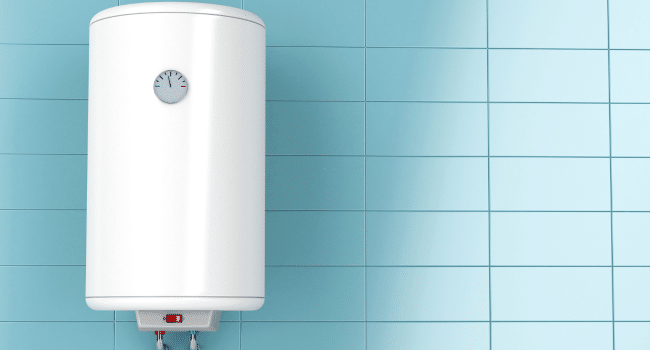Table of Contents
Managing domestic utilities is an essential task for homeowners, and ho+t water systems are a critical component of a comfortable, functional home. Convenient access to hot water is not just about comfort; it also impacts cleanliness, health, and even the value of the property. Therefore, understanding hot water systems and their proper maintenance is fundamental in ensuring longevity and efficacy.
Types of Hot Water Systems
Hot water systems come in various types, each with unique features and operational specifics. The most common systems include storage tank water heaters, tankless (on-demand) water heaters, heat pump water heaters, and solar-powered water heaters. The choice of a system usually depends on factors like energy efficiency, the volume of water used, the climate, and available energy sources.
Storage Tank Water Heaters
These are the most traditional types of water heaters. They consist of insulated tanks where water is heated and stored until needed. These systems can operate on electricity, natural gas, propane, or oil, and are known for their simplicity and reliability, although they can be less energy-efficient due to standby heat loss.
Tankless Water Heaters
Tankless water heaters provide hot water on demand, heating water directly without the use of a storage tank. They are known for being more energy-efficient than traditional tank heaters since they eliminate the need to constantly maintain a tank of hot water.
Heat Pump Water Heaters
These systems utilise electricity to move heat from one place to another instead of directly generating heat, which is a far more energy-efficient process. Heat pumps can be used in conjunction with storage tanks and are especially effective in warm climates.
Solar-Powered Water Heaters
For environmentally conscious consumers, solar water heaters are an attractive option. These systems harness solar energy to provide hot water, significantly reducing the dependency on conventional energy sources and offering long-term cost savings.
Maintenance of Hot Water Systems
Maintaining hot water systems is crucial for efficient operation and preventing breakdowns. Regular maintenance often includes checking for leaks, inspecting the pressure relief valve, monitoring the thermostat settings, and flushing the tank to eliminate sediment build-up. Anode rods, which prevent corrosion of the tank’s interior, should also be checked and replaced when necessary.
Importance of Hiring Professionals
For repairs, installation, and comprehensive maintenance, enlisting the services of a professional plumber in the Hills District can ensure that your hot water system functions optimally. Trained plumbers have the expertise to advise on the best type of system for your home, as well as tackle any disruptions in service swiftly and effectively.
Timely Interventions and Repairs
One of the keys to maintaining a hot water system is to address issues as soon as they arise. Timely interventions prevent small problems from escalating into bigger, more expensive repairs. A professional plumber will be equipped with the tools and knowledge to resolve issues, such as unusual noises, discoloured water, or inconsistent water temperature.
Choosing a Reliable Service Provider
Akin Pro Plumbing stands out as an exemplary service provider, with expertise across various hot water systems. A reliable plumbing service will offer not just repairs but also advice on energy efficiency, system upgrades, and regular maintenance schedules. It’s important to choose a plumber who is experienced and comes with a strong reputation.
Long-term Maintenance Plans
Investing in a long-term maintenance plan for your hot water system can save time and money in the long run. Regular check-ups by professionals can extend the life of your system and ensure that your home’s supply of hot water is continuous and reliable.
Understanding Your System’s Lifecycle
Hot water systems, like all appliances, have a finite lifespan. Understanding the typical lifecycle of your particular system allows for better planning when it comes to replacement or major overhauls. A conventional storage hot water system might last up to 12 years, while tankless models can have a longer service life of over 20 years. Regular maintenance is critical in achieving these lifespan estimates.
Energy Efficiency and Cost Savings
Beyond maintenance, understanding the energy efficiency of your hot water system can lead to considerable savings. Newer, more energy-efficient models can significantly reduce the cost of your bills over time. Moreover, energy-efficient systems often come with government incentives, which can offer an initial discount on the purchase price.
When to Upgrade Your Hot Water System
If your system is old, inefficient, or increasingly prone to breakdowns, it might be time to consider an upgrade. Modern hot water systems are not only more efficient but also are often designed to be eco-friendlier. Upgrades can involve moving from a tank to tankless system, switching energy sources, or incorporating new technologies such as smart thermostats.
Conclusion
Understanding your home’s Hot Water Systems is essential for efficient and effective functioning. Regular maintenance, carried out by professionals, is vital to ensure that your system operates at its best. Should you encounter any issues or require guidance, contacting a knowledgeable plumber in your local area is always the best course of action.
by considering these aspects, homeowners can enjoy the comfort and convenience of hot water and avoid unexpected disruptions. Regular maintenance, timely repairs, and understanding when to upgrade are all part of responsible homeownership and contribute to a comfortable, efficient home.
